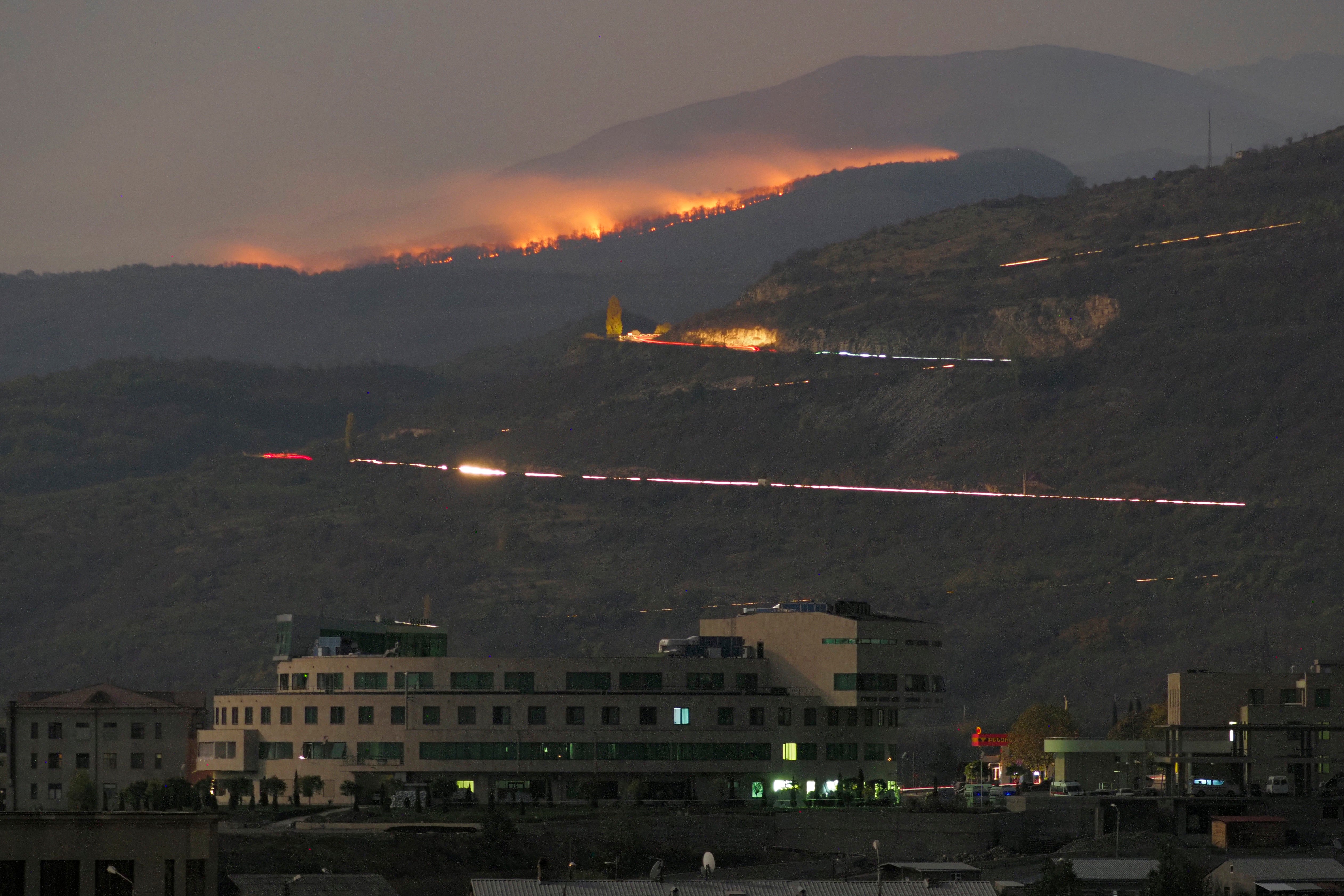At UN court, Azerbaijan accuses Armenia of ethnic cleansing
Azerbaijan’s deputy foreign minister has accused Armenia of “ethnic cleansing” and continuing to lay landmines in Nagorno-Karabakh even after a ceasefire ended a six-week war in the disputed region late last year

Your support helps us to tell the story
From reproductive rights to climate change to Big Tech, The Independent is on the ground when the story is developing. Whether it's investigating the financials of Elon Musk's pro-Trump PAC or producing our latest documentary, 'The A Word', which shines a light on the American women fighting for reproductive rights, we know how important it is to parse out the facts from the messaging.
At such a critical moment in US history, we need reporters on the ground. Your donation allows us to keep sending journalists to speak to both sides of the story.
The Independent is trusted by Americans across the entire political spectrum. And unlike many other quality news outlets, we choose not to lock Americans out of our reporting and analysis with paywalls. We believe quality journalism should be available to everyone, paid for by those who can afford it.
Your support makes all the difference.Azerbaijan s deputy foreign minister accused Armenia of “ethnic cleansing” and continuing to lay landmines in Nagorno-Karabakh even after a cease-fire ended a six-week war in the disputed region late last year, as a second case related to the conflict opened at the United Nations' top court.
Last week, the court held hearings into a complaint brought by Armenia against Azerbaijan, also related to last year's war that left more than 6,600 people dead.
The "campaign of ethnic cleansing and incitement to violence against Azerbaijanis, is ongoing,” Elnur Mammadov told the International Court of Justice.
Azerbaijan is asking the world court's judges to order Armenia to halt the laying of landmines, provide Azerbaijan with maps of minefields to assist clearance efforts and to take measures to halt incitement by Armenian groups of racial hatred and violence against Azerbaijani citizens.
Mammadov said that mines laid by Armenian forces during and since the war have killed or injured at least 106 Azerbaijanis, including 65 civilians, since the conflict was ended by a Russian-brokered peace deal.
“There is no valid military or other reason for Armenia to continue to target and terrorize Azerbaijanis in this manner,” he told the court.
Azerbaijan brought its case to the court alleging that Armenia's actions breach an international convention to stamp out racial discrimination. Armenia's separate case says that Azerbaijan's treatment of ethnic Armenians also breaches the convention.
Both cases will likely take years to reach a conclusion at the Hague-based court. The hearings in recent days are focused on both countries' requests for so-called provisional measures that the court can impose in order to prevent acts that could affect the cases. Judges will likely issue their decisions on those requests in coming weeks.
Both cases stem from a long-running territorial dispute that boiled over into last year’s war over the Nagorno-Karabakh region that is within Azerbaijan but had been under the control of ethnic Armenian forces backed by Armenia since the end of a separatist war in 1994.
Last year’s fighting ended when Armenian Prime Minister Nikol Pashinyan signed a cease-fire agreement that granted Azerbaijan control over parts of Nagorno-Karabakh as well as adjacent territories occupied by Armenians.
Last week, Armenia accused Azerbaijan of inciting ethnic hatred and called on Baku to release prisoners from the war. Lawyers for Azerbaijan denied the claims and said Armenian forces still being held have been prosecuted or are being prosecuted for serious crimes.